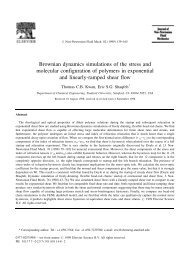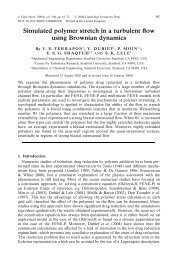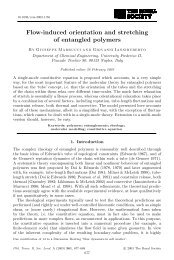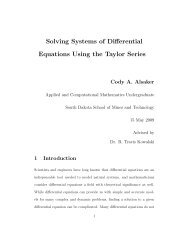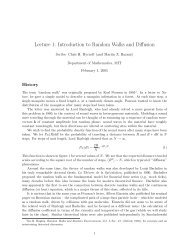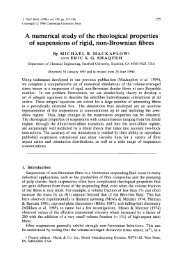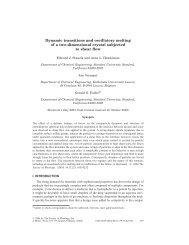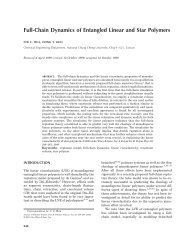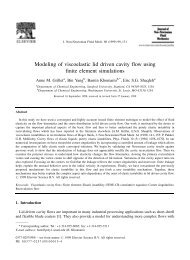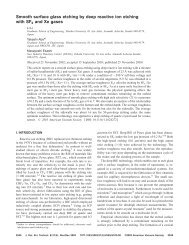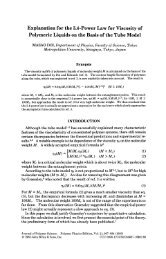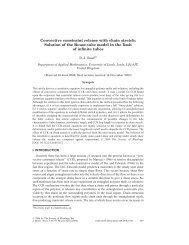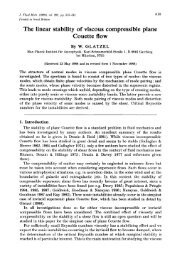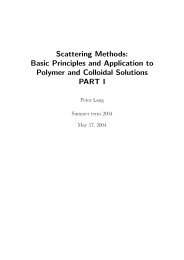Molecular modelling of entangled polymer fluids under flow The ...
Molecular modelling of entangled polymer fluids under flow The ...
Molecular modelling of entangled polymer fluids under flow The ...
You also want an ePaper? Increase the reach of your titles
YUMPU automatically turns print PDFs into web optimized ePapers that Google loves.
1.7. ALTERNATIVE EXPERIMENTAL TECHNIQUES 11<br />
This can be written more compactly as<br />
∇<br />
σ = − 1 ) (σ − GI . (1.20)<br />
≈ τ ≈ ≈<br />
Where the operator ∇ is known as an upper convected Maxwell derivative and the<br />
general form <strong>of</strong> constitutive equation is called an upper convected Maxwell equation. In<br />
the non-linear regime the choice <strong>of</strong> equation 1.5 as the starting point <strong>of</strong> the derivation is<br />
arbitrary and other combinations <strong>of</strong> the finger tensor are equally permissible. Under this<br />
empirical approach these choices can only be vindicated by comparison with observed<br />
phenomena.<br />
If the relaxation modulus is taken to be a sum over exponential Maxwell modes<br />
(equation 1.15) then equation 1.20 can be solved for an independent set <strong>of</strong> non-linear<br />
Maxwell modes to produce stress predictions.<br />
1.7 Alternative experimental techniques<br />
Although the measurement <strong>of</strong> mechanical stresses is the most common and arguably<br />
the most industrially relevant measurement there are a range <strong>of</strong> additional experimental<br />
techniques which can be used to provide information about <strong>polymer</strong> <strong>fluids</strong> <strong>under</strong> <strong>flow</strong>.<br />
From an empirical point <strong>of</strong> view these measurements provide additional phenomena<br />
that must be explained. However, they are particularly useful in the field <strong>of</strong> molecular<br />
rheology since many <strong>of</strong> the experiments <strong>of</strong>fer a more direct probe <strong>of</strong> the molecular<br />
dynamics. Examples <strong>of</strong> these experiment include small angle neutron scattering (SANS)<br />
[Müller et al. (1993), McLeish et al. (1999)], NMR [Cormier and Callaghan (2002)],<br />
neutron spin echo [Wischnewski et al. (2002)] and dielectric relaxation [Watanabe et al.<br />
(2002)]. <strong>The</strong> use <strong>of</strong> these measurements in the verification and development <strong>of</strong> molecular<br />
models is a relatively new approach but they appear to provide new insight into the<br />
behaviour <strong>of</strong> <strong>polymer</strong>s <strong>under</strong> <strong>flow</strong> [McLeish (2002)].



